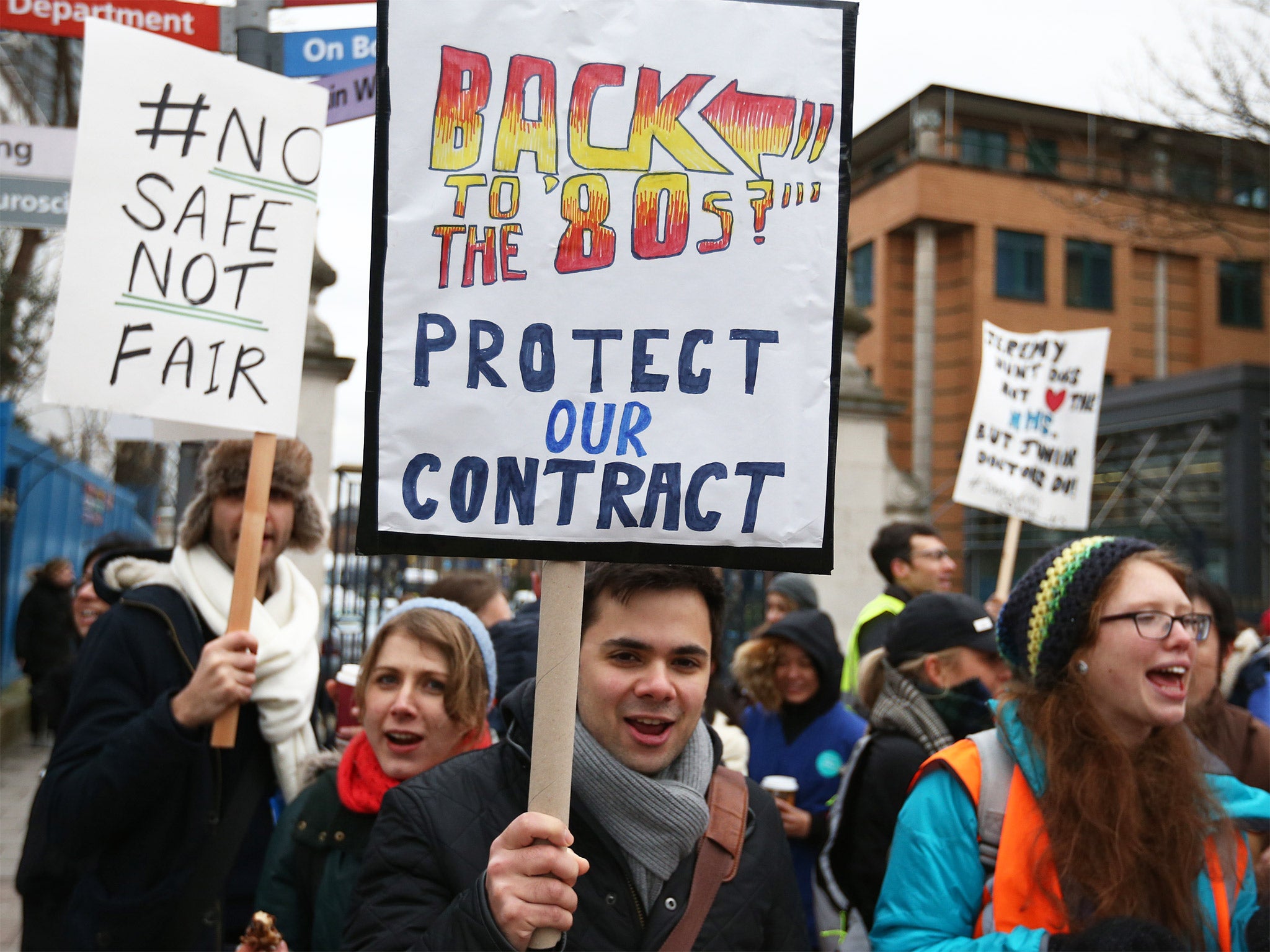Junior doctors could be unilaterally forced to accept new contract, David Cameron says
Doctors are on strike over the changes which they say will make the NHS less safe

Your support helps us to tell the story
From reproductive rights to climate change to Big Tech, The Independent is on the ground when the story is developing. Whether it's investigating the financials of Elon Musk's pro-Trump PAC or producing our latest documentary, 'The A Word', which shines a light on the American women fighting for reproductive rights, we know how important it is to parse out the facts from the messaging.
At such a critical moment in US history, we need reporters on the ground. Your donation allows us to keep sending journalists to speak to both sides of the story.
The Independent is trusted by Americans across the entire political spectrum. And unlike many other quality news outlets, we choose not to lock Americans out of our reporting and analysis with paywalls. We believe quality journalism should be available to everyone, paid for by those who can afford it.
Your support makes all the difference.Junior doctors could be unilaterally forced by the Government to accept a new contract they did not agree to, David Cameron has said.
The Prime Minister said junior doctors should not be given a “veto” over changes to their conditions in the NHS
He was asked in an interview this morning whether doctors would have to agree to a new contract or whether it could be unilaterally imposed.
“We can’t rule that out because we can’t simply go into a situation where the junior doctors have a complete veto and block over progress in our NHS,” he told BBC Radio 4’s Today programme.
The Prime Minister later added: “This is all a matter for discussion between the BMA and NHS authorities but let’s hope it doesn’t come to that.
“If you rule out ever imposing a contract you’re basically giving a veto to the BMA over what the situation will be in future, and we can’t do that. WE have a manifesto commitment to a seven-day NHS.”
Junior doctors are staging a rolling programme of strikes to stop the new contract, which they say will incentivise unsafe shift patterns and leave doctors working the longest hours worse off.
The Government says the changes to the contract, which re-define which working hours count as anti-social and therefore merit special pay, are necessary to improve weekend NHS services.
Junior doctors walked out for one day last week for all services except emergency care. Another similar strike day is planned later this month, with a third strike day in February that would involve a complete stoppage.
There is strong public support for the strike action so far, according to a series of general opinion polls conducted about the dispute. Junior doctors themselves also overwhelmingly voted to strike with 98 per cent in favour on a high turnout.
Academic evidence of previous strikes also suggests that there is little impact on patient mortality from stoppages, though the Health Secretary has warned that patients could be harmed.
Medical professionals have criticised the Government’s use of academic studies to support their argument, with the editor of the British Medical Journal having written to Jeremy Hunt to accuse him of misusing a study apparently showing higher death rates on weekends.
Doctors and academics say the apparent findings are not necessarily because care in the NHS is poorer on the weekends but because patients admitted on weekends are often simply more ill.
Both the Government and the British Medical Association, which represents doctors, have accused each other of refusing to properly negotiate.
Subscribe to Independent Premium to bookmark this article
Want to bookmark your favourite articles and stories to read or reference later? Start your Independent Premium subscription today.
Join our commenting forum
Join thought-provoking conversations, follow other Independent readers and see their replies
Comments